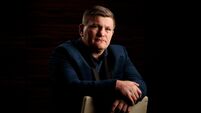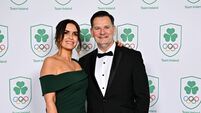Kieran Shannon: Sport doesn’t just involve stats and facts but flesh and blood
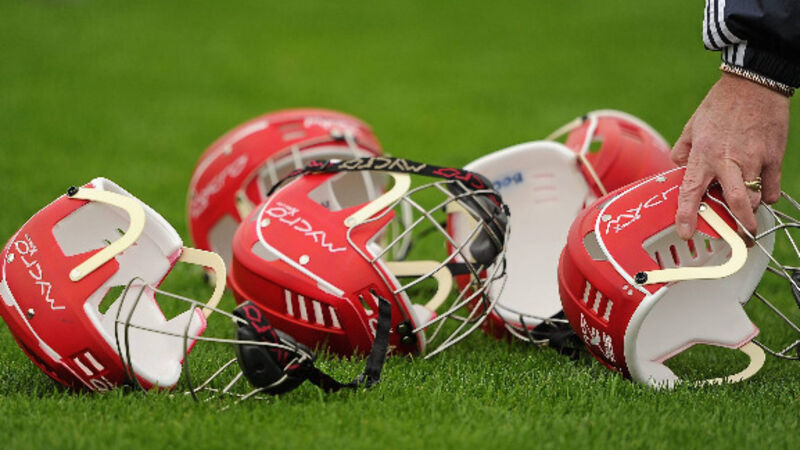
The other day, during a guest lecture to students on the new masters in sports journalism course in UL, I tried, without maybe succeeding, to make the point that, to paraphrase that old street-corner song about love in the early Rocky movies, “there are two kinds of sport that you ought to know, there are two kinds of sport”.
The first type is the only one I knew of and appreciated starting out in the journalism game, what we’ll call the Jimmy Magee school of Know Your Sport.
Name the Manchester United XI that won the 1985 FA Cup final.
Who won the three Tours de France between Miguel Indurain’s final victory and Lance Armstrong’s first?
Name the county grounds of all 32 GAA counties. Had Jimmy’s quiz show still being on the air, I’d have fancied a shot at winning one of those ties.
To this day I still get a kick out of such a trivial pursuit. An hour can fly by on Sporcle (the trivia quiz website) where, against a clock, I can list almost every GAA and NBA All Star of the last 20 years, or indeed the previous 20, as well as the 49 clubs to play in the Premier League since the Anno Domini that was ’92-93.
When Lorcan Murphy went for 33 points in last month’s basketball National Cup final, guess who was able to identify and tweet that it was the highest score ever by an Irish men’s player in a National Cup final, three more than Stephen McGurk went for 20 years ago?
Boomshackalacka! All net! Still Got Game!
Only thing is, at least now I know it’s not the only thing you need to know in this game.
Sport doesn’t just involve stats and facts but flesh and blood.
The other day in UL I spoke about how I got it wrong back in 2002 claiming how Páidí Ó Sé got it wrong in that year’s All-Ireland final.
The year before Kerry had been ambushed, trounced, humiliated by Meath in an All-Ireland semi-final.
In his underrated autobiography published a few months later, Páidí would write insightfully and eloquently on what had gone wrong. Less than 12 months on and in a national paper I was throwing those words back at him. That he and Kerry hadn’t learned.
Armagh had beaten them just how Meath had beaten them. Even though Armagh had only won by a point, not 14.
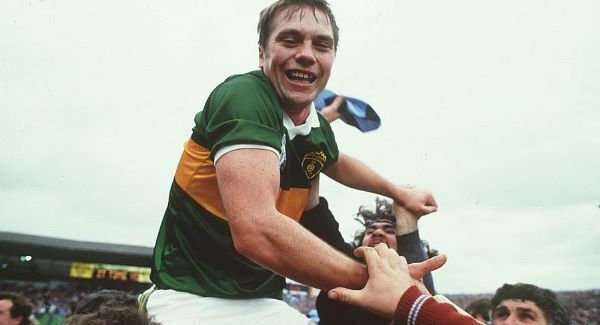
Back then, I still didn’t get it. That, as Páidí would say while bravely raising a smile to anyone he encountered in the airport in Farranfore the day after the Meath game, “Sure, these things happen.”
For sure, there were things that Kerry could have done to reduce the chance of such things happening, and a part of my job was, as the famous Theodore Roosevelt would put it, to point “out how the strong man stumbles, or where the doer of deeds could have done them better”.
But I still didn’t have an adequate appreciation or empathy for a man in the arena like an Ó Sé, who at least knew the great enthusiasms and the great devotions, and who, while failing, at least failed while daring greatly, and wasn’t a cold, timid soul like myself who at the time neither knew victory nor defeat.
Over time, through further experience as a writer and in other fields, I’d come to be less judgmental and far more appreciative of the great enthusiasms and devotions and failings that come with sport, including through a couple of one-point All-Ireland final defeats of my own.
And so, whenever I see some cold, timid soul on social or mainstream media from the Jimmy Magee school lambast LeBron James with his three-from-nine record in the NBA Finals being even considered in the GOAT conversation alongside Michael Jordan with his six-for-six record, my reflex is similar to what Páidí’s must have been upon reading me yesteryear. Man, who are you?!
What do you know about what all goes with this?! Sing it: “There are two kinds of sport that you ought to know, there are two kinds of sport…”
Over the years I’ve been fortunate enough to have many conversations with the leading coach educator, Liam Moggan, including several that translated into interviews published in this paper.
The first of those appeared in 2014, the same year he was a performance coach to a Kerry team that would win the All-Ireland, having enjoyed the kind of luck that had eluded Páidí in 2002, but, as Moggan would explain, there was so much more to sport.
“Sport is getting to know people and involving people and connecting with people. That’s its real value.
"That’s what we have to remember. And if we miss that, we miss everything. At the moment we’re missing that. We’re only valuing the winners, the winners, the winners.”
Instead he felt we should be cherishing more what he termed the Lost Souls and Poor Creaters. Like you and me on some half-marathon.
“We might be together for five or six miles, not really knowing each other, but we’ve been brought together in this challenge.
And the number of people who do that, who cross the line giving a high five or a hug and then shake hands and part, I think it’s beautiful. I love that in sport, that connection it allows us make with others.
"It crosses all countries, all sport. But I don’t think we value that enough.”
In another interview I did with him two years ago upon his retirement from Coaching Ireland, he’d declare that if he had one wish for sport in Irish life it would be that by Monday morning there would be specialist PE teachers in every primary school in the country, just as almost every other developed European country has. Why was Ireland different?
He attributed it to the 1937 Constitution. In an earlier draft, Article 42 included that the State had a role in the physical development as “the religious, intellectual and moral development of the child”.
Only in the last draft De Valera and Archbishop McQuaid between them removed reference to the “physical development”.
“And that’s why there’s no PE teachers in primary schools,” Moggan would conclude. “There’s no expectations on the government to have them in there.”
In his view generations of kids have lost out. Too many of them have been unable to swim or take part in any other water sport with their family and friends.
Too many have shied away from sport because they felt incompetent at throwing a ball or running or just staying on their feet. It’s reduced the number of medals Ireland could have won too.
In other countries they might do an hour of formal as well as informal physical activity every day. So when they’re 17 and 18 and competing against some of our best who get up there, it’s like the engine of a Ferrari competing with the engine of a Lada.
The day before last, the now former minister and TD, Shane Ross, gave an insightful and sometimes self-deprecating interview to Pat Kenny on Newstalk.
It would be fair to say that were you to combine Know Your Sport with Who Wants To Be a Millionaire?, Ross would hardly be your choice as call a friend, as ‘Dominant’ Sanita Puspure can attest. Nonetheless, he’d still come more from the Jimmy Magee school.
As he’d tell Kenny, he regularly attended Irish international football matches long before he became a minister.
What he didn’t know was the other kind of sport. As he’d admit to Kenny, “I wasn’t doing it at the grassroots [level] until I became a TD. I have to be absolutely honest about that.
"But what I discovered about sport, which really was absolutely stunning, over the four or five years — the incredible amount of activity that goes on that is fuelled and supported and completely kept going by the volunteers.”
He still didn’t get to where he needed to get to for a position like that.
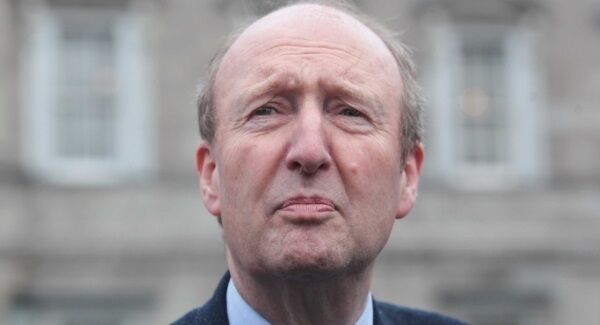
A couple of days before Ross would lose his seat, Basketball Ireland chief executive Bernard O’Byrne revealed that, for 18 months, he tried unsuccessfully to secure a meeting with Ross or his junior minister, Brendan Griffin.
A fortnight earlier, O’Byrne told this column that whenever he did get to talk to some governmental clerics to try to get more schools to open their halls to clubs, the Department of Sport would claim it was a matter for the Department of Education, only for them to kick it back to sport again.
Amid all the confusion and bureaucracy, one thing was clear: Not all children of the nation were being treated equally.
Such a mindset was pervasive throughout the last Dáil. It was particularly apparent when, three years ago, the CEOs of the three big sports were invited in to be quizzed for an Oireachtas committee meeting.
There, Messrs Delaney, Duffy, and Browne were asked about their views on the World Cup being possibly expanded to 48 nations, Congress motions requiring a two-thirds majority, and how Dundalk’s Europa League run could benefit the League of Ireland.
All from the Jimmy Magee school of Know Your Sport.
Irish sport and its children deserve better. By having a government, Departments of Education and Sport, and a PE system that caters for and helps along the Poor Creaters and Lost Souls, as well as inevitably producing more ‘Dominant’ Puspures and Katie Taylors to glory in.
By finally having a ministry and minister of sport that is fair and welcoming to all sports, and is actually up to speed with its brief — and knows there are two kinds of sport that they ought to know.







